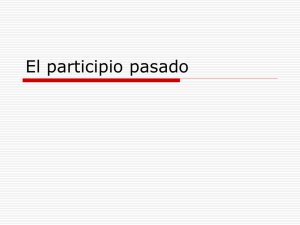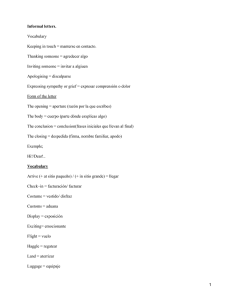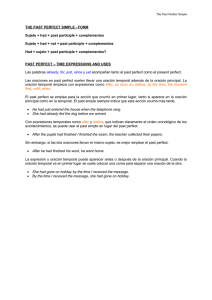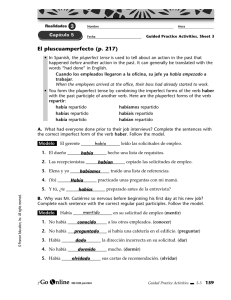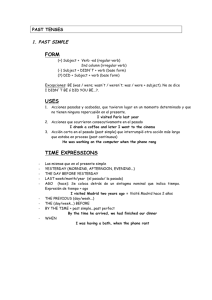Apuntes sobre el pluscuamperfecto/pluscuamperfecto del subjuntivo
Anuncio
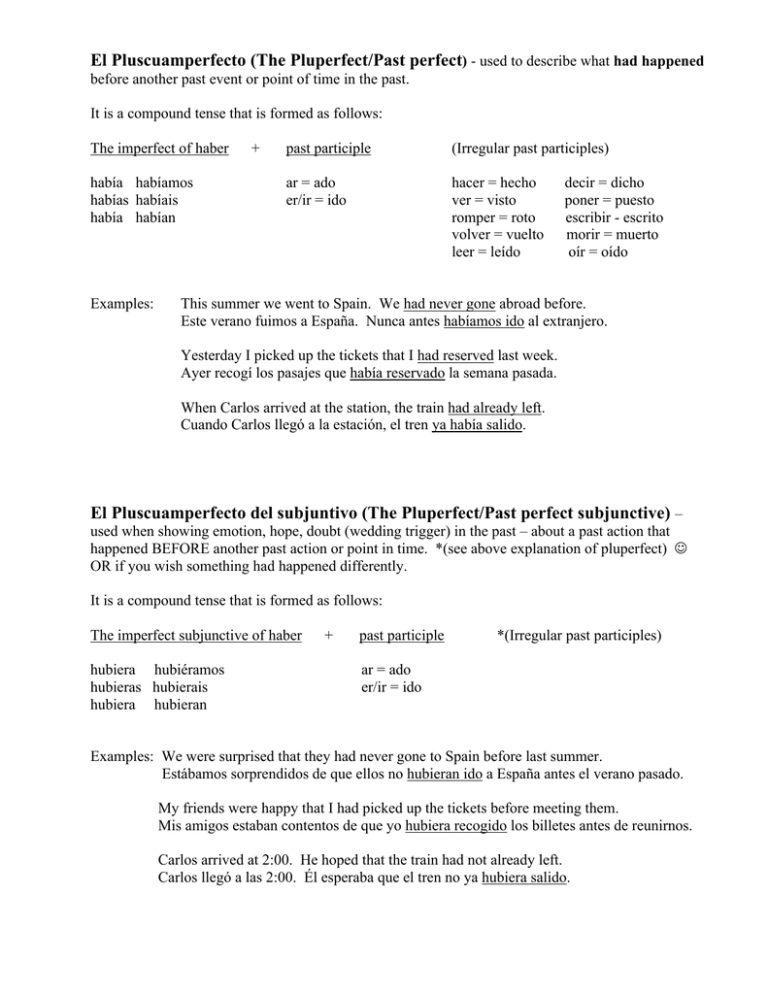
El Pluscuamperfecto (The Pluperfect/Past perfect) - used to describe what had happened before another past event or point of time in the past. It is a compound tense that is formed as follows: The imperfect of haber había habíamos habías habíais había habían Examples: + past participle (Irregular past participles) ar = ado er/ir = ido hacer = hecho ver = visto romper = roto volver = vuelto leer = leído decir = dicho poner = puesto escribir - escrito morir = muerto oír = oído This summer we went to Spain. We had never gone abroad before. Este verano fuimos a España. Nunca antes habíamos ido al extranjero. Yesterday I picked up the tickets that I had reserved last week. Ayer recogí los pasajes que había reservado la semana pasada. When Carlos arrived at the station, the train had already left. Cuando Carlos llegó a la estación, el tren ya había salido. El Pluscuamperfecto del subjuntivo (The Pluperfect/Past perfect subjunctive) – used when showing emotion, hope, doubt (wedding trigger) in the past – about a past action that happened BEFORE another past action or point in time. *(see above explanation of pluperfect) OR if you wish something had happened differently. It is a compound tense that is formed as follows: The imperfect subjunctive of haber hubiera hubiéramos hubieras hubierais hubiera hubieran + past participle *(Irregular past participles) ar = ado er/ir = ido Examples: We were surprised that they had never gone to Spain before last summer. Estábamos sorprendidos de que ellos no hubieran ido a España antes el verano pasado. My friends were happy that I had picked up the tickets before meeting them. Mis amigos estaban contentos de que yo hubiera recogido los billetes antes de reunirnos. Carlos arrived at 2:00. He hoped that the train had not already left. Carlos llegó a las 2:00. Él esperaba que el tren no ya hubiera salido.
